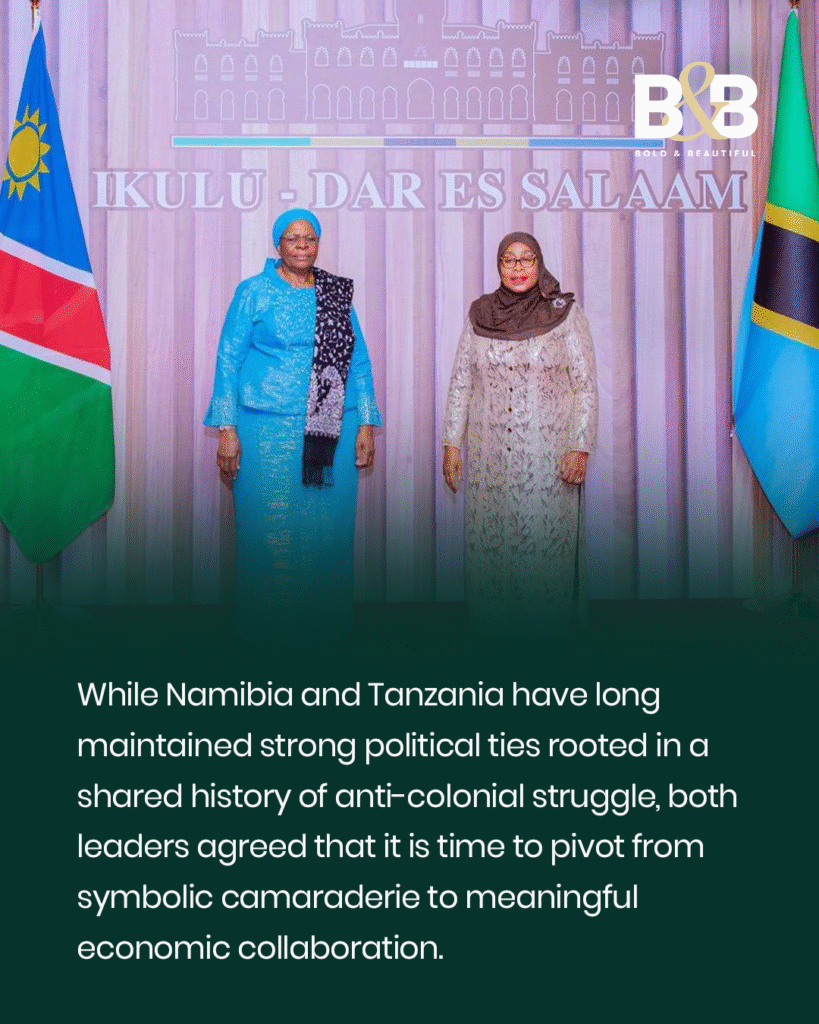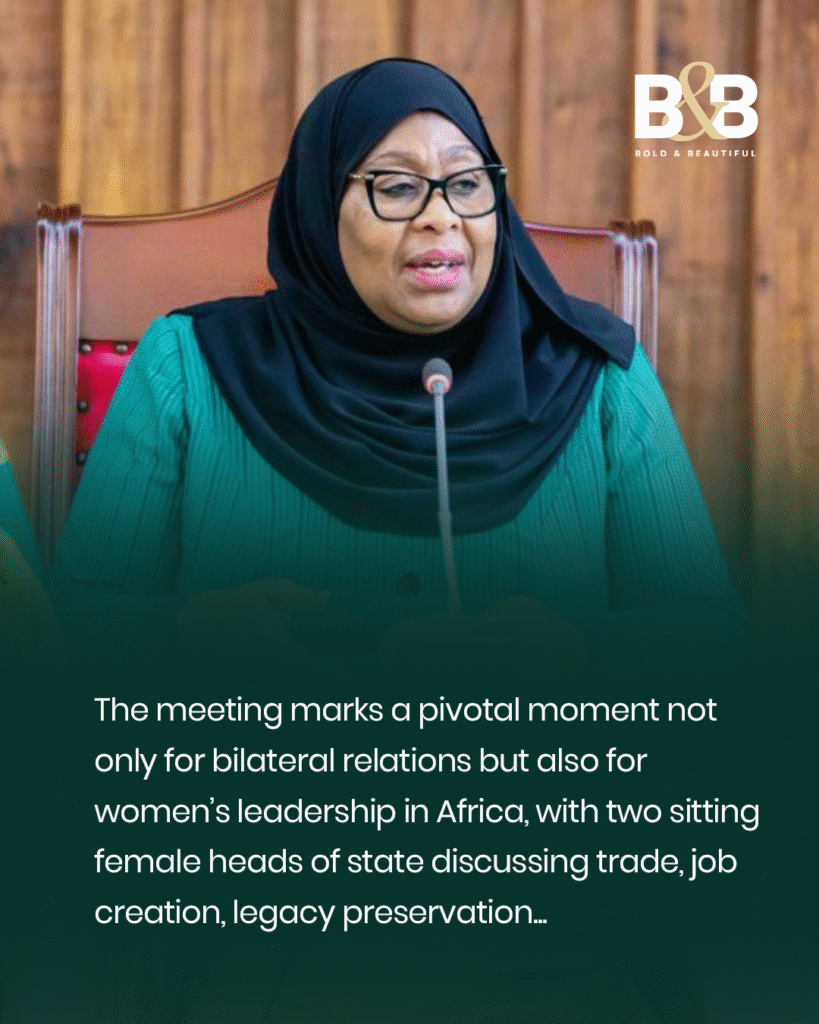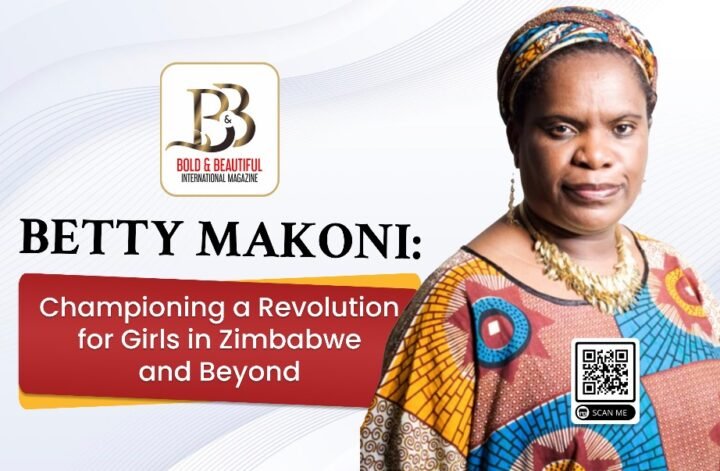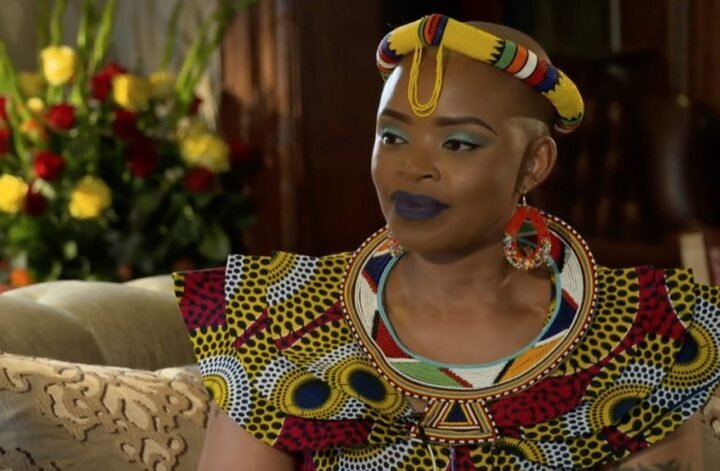Namibia’s President Netumbo Nandi-Ndaitwah and her Tanzanian counterpart President Samia Suluhu Hassan met in Dar es Salaam to chart a new course for economic cooperation between the two nations.

The meeting, held on Thursday, marks a pivotal moment not only for bilateral relations but also for women’s leadership in Africa, with two sitting female heads of state discussing trade, job creation and legacy preservation from a position of authority and mutual respect.
While Namibia and Tanzania have long maintained strong political ties, rooted in a shared history of anti-colonial struggle, both leaders agreed that it is time to pivot from symbolic camaraderie to meaningful economic collaboration.
“Namibia’s independence today is a result of the unwavering support of Tanzania during our long struggle for freedom,” said President Nandi-Ndaitwah in official notes released after the meeting. “Now, we must transform this history into tangible development outcomes for our people.”

TRADE STILL LOW, BUT POTENTIAL HIGH
According to Namibian presidential spokesperson Alfredo Hengari, current trade between the two countries sits at a modest US$7.5 million. Both leaders expressed concern over this figure and committed to expanding commercial exchange, particularly in sectors such as agriculture, fisheries, tourism, blue economy and transport infrastructure.
President Nandi-Ndaitwah also extended an invitation to Namibian enterprises to participate in the upcoming Dar es Salaam International Trade Fair as a step towards deeper economic integration.
“Agriculture stands out as a major area of opportunity. Namibia can learn from Tanzania’s innovative use of agriculture to empower youth,” said Hengari, emphasising the shift from policy rhetoric to implementation.
COOPERATION ROOTED IN HISTORY
Beyond economic dialogue, the visit paid homage to the historical depth of the Namibia-Tanzania relationship. In the Dodoma region, tombstones were unveiled for three Namibian freedom fighters buried at the historic Kongwa site. The ceremony, held on 15 February, was led by Namibia’s High Commissioner Lebbius Tangeni Tobias and honoured by Kongwa District Commissioner Mayeka S. Mayeka.
“This visit was not only about economics. It was about memory. Our history is a living force,” Nandi-Ndaitwah reflected.
In a move to preserve that legacy, Namibia proposed the establishment of the Sam Shafiishuna Nujoma Library at the Kongwa site, named after the late founding president who once resided at the camp. The library aims to become a Pan-African hub for liberation history, spotlighting iconic figures including Julius Nyerere, Samora Machel, Nelson Mandela and Kenneth Kaunda.
RENEWABLE ENERGY AND REGIONAL SOLIDARITY
President Nandi-Ndaitwah also used the occasion to urge Tanzania to ratify the Inter-Governmental Memorandum of Agreement (IGMoA) for the SADC Centre for Renewable Energy and Energy Efficiency (Sacreee), which she described as crucial for regional energy security. Although 11 SADC member states have signed the agreement, only six — including Namibia — have ratified it.

“Energy access is not just an infrastructure issue; it is a development issue,” she said. “We need collective commitment to ensure Sacreee becomes a fully operational regional mechanism.”
WOMEN-LED DIPLOMACY IN ACTION
The meeting between Nandi-Ndaitwah and Suluhu Hassan was a visual and political reminder of the evolving face of African leadership. Both women represent a new chapter in African governance, where diplomacy, development and history are guided by inclusive, forward-looking leadership.
Their shared commitment to youth empowerment, agricultural innovation and heritage preservation is not just a bilateral achievement, but a signal to the continent that African women in power are shaping the future — decisively and strategically.





